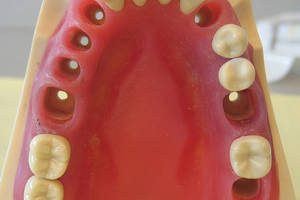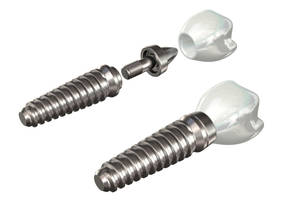Dental implants are the only way to properly replace a missing tooth, that is, to replace all and every single part of the tooth. Unfortunately, certain pre-existing medical conditions - almost always chronic health problems - make it impossible, or unadvisable to undergo dental implantation. Some of these are straightforward and can be understood at once: problems of the bones like osteoporosis that make it impossible, or haemophilia, where the blood just keeps coming are in this category. But some conditions are not intuitive at all, and diabetes is one of them. It is unadvisable to get dental implants if you have diabetes. But why?

Why diabetes?
We get inquiries like this on a weekly basis: a patient wants to know why they cannot get dental implants if their bones are strong, they take care of their diabetes and do not let it get out of control, and take their medication daily, and this is a type 2 usually, meaning it is milder. So why can’t they get dental implants?
It is because chronic conditions can get worse. Your diabetes is under control now, but you cannot really say that 10 years from now, your condition, and the condition of your jaw bones will not deteriorate. Unfortunately, there is a risk that these circumstances will not be suitable for dental implants in a few years’ or decades’ time.
Legal issues
While dental implantation of a person who has enough bone density in their jaw is perfectly possible, even if they have diabetes, the legal issues surrounding dental implants make it simply now worth it for the dentist. Dental implants are expensive, and for a good reason; you only need to get them once, and they remain good for a lifetime. This is reflected in the legal aspects of getting a dental implant; there are guarantees and safeguards to make sure you get the most for your money. With a patient with diabetes, these guarantees cannot in every instance be safeguarded, as their condition, and the condition of their bones and gums tends to deteriorate, or has the likelihood of deteriorating. Thus selling the dental implants for the same price as it is sold to everyone else is not entirely ethical. But the dentist cannot sell it for less, and thus, diabetics are often excluded.
What can be done?
To restore chewing function and to aid speech, a crown or bridge is fine. The problem is that these dental prostheses do not stop tooth loss as a condition, and only replace the function of the crown that has gone missing. If you have diabetes, the best thing to do is to visit your dentist regularly, and to be aware of the fact that you are at risk, and to take care of your teeth accordingly. If any sign of looseness comes along, you must contact your dentist immediately.
Our fees at London and Budapest
Claim your free consultation!
Special dental offer for those who decide to travel and would like to stay in Budapest!
The offer is valid until 31st of December, 2019.





